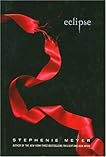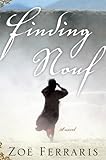
I have been having an ongoing conversations with friends about a good example of representative science fiction. There are so many suggestions, so many types of science fiction, so many great authors out there. Nailing it down to one or two stories that would represent the entire field is a near impossibility.
In the midst of chatting a friend told me about a book of hers (or maybe her husband's), The Super Hugos, a compilation of ten or so of the best science fiction stories ever written. The stories were voted on by science fiction fans who chose the best of the Hugo Award winners over the years. (Among the many awards given in science fiction every year, the Hugo is the only award that is voted on by the readers.) Isaac Asimov was slated to introduce each of the stories. Unfortunately, he passed away before he could write the introductions.
I had heard of most of the authors. A handful of the stories were familiar, either because they had been turned into movies or because I had reason another version of them in the past. But there were some completely unfamiliar stories and at least one new author which is always a bonus considering the huge amount of science fiction my husband knows and has read.
I enjoyed the variety of stories in this compilation. There was familiar fantasy - the first Dragonriders of Pern story written by Anne McCaffrey; familiar sci fi - "Enemy Mine" made famous with the movie staring Dennis Quaid; a bit of horror - "Sandkings" by George R. R. Martin; and infinitely famous - the first rendition of "Flowers for Algernon" by Daniel Keyes. And truthfully a dated story that I just didn't feel has held up to the test of time.
I am so glad my friend gave me this book. But, I will say, it was a hard read consecutively. Each story entered a brand-new realm with all the requisite descriptions of the people, the world, the traumas. It was a lot to wrap my head around every night.
And the final question - were there one or two stories in this compilation that could be described as representative science fiction? In a way, yes. I think the short Arthur C. Clarke story was incredible. That is a story I would recommend. I think McCaffrey has had such an incredible influence on the fantasy world that her story is classic. "Flowers for Algernon" is obviously a well-known representation of the impact of science on the everyday. But one story? I have come to realize, with the help of The Super Hugos, that there is no such thing as one story or book that can define the genre of science fiction.


